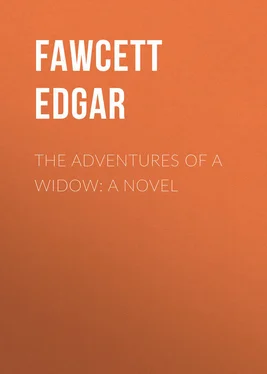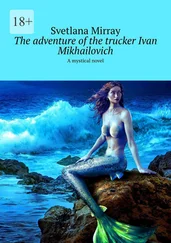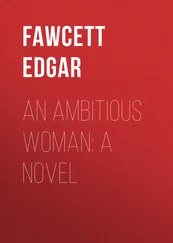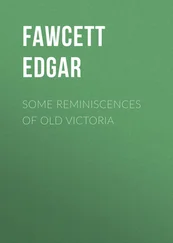Edgar Fawcett - The Adventures of a Widow - A Novel
Здесь есть возможность читать онлайн «Edgar Fawcett - The Adventures of a Widow - A Novel» — ознакомительный отрывок электронной книги совершенно бесплатно, а после прочтения отрывка купить полную версию. В некоторых случаях можно слушать аудио, скачать через торрент в формате fb2 и присутствует краткое содержание. Жанр: foreign_antique, foreign_prose, на английском языке. Описание произведения, (предисловие) а так же отзывы посетителей доступны на портале библиотеки ЛибКат.
- Название:The Adventures of a Widow: A Novel
- Автор:
- Жанр:
- Год:неизвестен
- ISBN:нет данных
- Рейтинг книги:4 / 5. Голосов: 1
-
Избранное:Добавить в избранное
- Отзывы:
-
Ваша оценка:
- 80
- 1
- 2
- 3
- 4
- 5
The Adventures of a Widow: A Novel: краткое содержание, описание и аннотация
Предлагаем к чтению аннотацию, описание, краткое содержание или предисловие (зависит от того, что написал сам автор книги «The Adventures of a Widow: A Novel»). Если вы не нашли необходимую информацию о книге — напишите в комментариях, мы постараемся отыскать её.
The Adventures of a Widow: A Novel — читать онлайн ознакомительный отрывок
Ниже представлен текст книги, разбитый по страницам. Система сохранения места последней прочитанной страницы, позволяет с удобством читать онлайн бесплатно книгу «The Adventures of a Widow: A Novel», без необходимости каждый раз заново искать на чём Вы остановились. Поставьте закладку, и сможете в любой момент перейти на страницу, на которой закончили чтение.
Интервал:
Закладка:
There was something piteous, and yet humorous as well, in her present intellectual state. She was a young leader in the cause of culture, without a following. She believed firmly in herself, and yet deceived herself. Much in the world that it was now her fixed principle to shun and reprobate, she liked and clung to. These points of attraction were mostly superficialities, it is true, like the fashion of clothes or the conventionalism of accepted social customs. But even these she had more than half persuaded herself that she despised, and when she observed them in others they too often blinded her to attractions of a less flimsy sort. She had verged upon a sanguine and florid fanaticism, and was wholly unconscious of her peril. Some of Courtlandt's sober comments might effectually have warned her, if it had not been for a marked contrary influence. This was represented by the gentleman whom we have already heard her name as Mr. Kindelon.
She had been presented to him on the steamer during her recent homeward voyage, by an acquaintance who knew little enough regarding his antecedents. But Ralph Kindelon had been at once very frank with her. This was the most prominent trait that usually disclosed itself in him on a first acquaintance; he always managed to impress you by his frankness. He had a large head set on a large frame of splendid, virile proportions. His muscular limbs were moulded superbly; his big hands and feet had the same harmony of contour, despite their size; his grace of movement was extraordinary, considering his height and weight; the noble girth and solidity of chest struck you as you stood close to him – men found it so substantially, women so protectively, human. A kind of warmth seemed to diffuse itself from his bodily nearness, as if the pulse of his blood must be on some exceptionally liberal scale. But for those whom he really fascinated his real fascinations lay elsewhere. You met them in the pair of facile dimples that gave genial emphasis to his sunny smile; in the crisp, coarse curl of his blue-black hair, which receded at either temple, and drooped centrally over a broad, full brow; in the sensuous, ample, ruddy mouth, which so often showed teeth of perfect shape and unflawed purity, and was shaded by a mustache tending to chestnut in shade, with each strong crinkled hair of it rippling away to the smooth-sloping cheeks; and lastly in the violet-tinted Irish eyes, whose deep-black lashes had a beautiful length and gloss.
Kindelon spoke with a decided brogue. It was no mere Celtic accent; it was the pure and original parlance of his native island, though shorn of those ungrammatical horrors with which we are prone by habit to associate it. His English was Irish, as one of his own countrymen might have said, but it was very choice and true English, nevertheless. Well as he spoke it, he spoke it immoderately, even exorbitantly, when the mood was upon him, and the mood was upon him, in a loquacious sense, with considerable pertinacity. He was the sort of man concerning whom you might have said, after hearing him talk three minutes or so, that he talked too much; but if you had listened to him five minutes longer, your modified opinion would probably have been that he scarcely talked too much for so good a talker.
It has been chronicled of him that he was extremely frank. Before he had enlivened during more than an hour, for Pauline, the awful tedium of an Atlantic voyage in winter, she discovered herself to be in a measure posted concerning his personal biography. His parents had been farmers in his native Ireland, and he was the fourth of a family of eleven children. At the age of twelve years a certain benevolent baronet, whose tenant his father was, had sent him to school in Dublin with a view toward training and encouraging a natural and already renowned precocity. At school he had done well until seventeen, and at seventeen he had suddenly found himself thrown on the world, through the death of his patron. After that he had revisited his somewhat distant home for a brief term, and soon afterward had taken passage for America, aided by the funds of an admiring kinsman. He had even then developed evidence of what we call a knack for writing. After severe hardships on these shores, he had drifted into an editorial office in the capacity of printer. This had been a godsend to him, and it had fallen from the skies of Chicago, not New York. But New York had ultimately proved the theatre of those triumphs which were brilliant indeed compared with the humdrum humility of his more Western pursuits. Here he had written articles on many different subjects for the local journals; he had served in almost every drudging department of reportorial work; he had risen, fallen, risen, and at last risen once and for all, durably and honorably, as an associate-editor in a popular and prominent New York journal. He told Pauline the name of his journal – the New York "Asteroid" – and she remembered having heard of it. He laughed his affluent, mellow laugh at this statement, as though it were the most amusing thing in the world to find an American who had only "heard of" the New York "Asteroid."
In a political sense, and moreover in all senses, he was a zealous liberal. How he had managed to scrape together so remarkable an amount of knowledge was a mystery to himself. Everything that he knew had been literally "scraped together;" the phrase could not be apter than when applied to his mental store of facts. He read with an almost phenomenal swiftness, and his exquisite memory retained whatever touched it with a perfection like that of some marvellously sensitive photographic agent. He never forgot a face, a book, a conversation. He hardly forgot a single one of his newspaper articles, and their name was legion. His powers just stopped short of genius, but they distinctly stopped there. He did many things well – many things, in truth, which for a man so hazardously educated it was surprising that he did at all. But he did nothing superlatively well. It was the old story of that fatal facility possessed by numbers of his own countrymen who have migrated to these shores. Perhaps the one quality that he lacked was a reflective patience – and this is declared of his brains alone, having no reference to his moral parts. He leaped upon subjects, and devoured them, so to speak. It never occurred to him that there is a cerebral digestion, which, if we neglect its demands, inevitably entails upon us a sort of dyspeptic vengeance. In crushing the fruit with too greedy a speed we get to have a blunted taste for its finer flavor.
Within certain very decided limits he had thus far made an easy conquest of Pauline. She had never before met any one whom he remotely resembled. In the old days she would have shrank from him as being unpatrician; now, his fleet speech, his entire lack of repose, his careless, unmodish, though scrupulously clean dress, all had for her an appealing and individual charm. After parting on the arrival in New York, she and Kindelon had soon re-met. He bore the change from oceanic surroundings admirably in Pauline's eyes. With characteristic candor he told her that he had come back from the recent visit to his old parents in Ireland (Pauline knowing all about this visit, of course) to find himself wofully poor. She was wondering whether he would resent the offer of a loan if she made him one, when he suddenly surprised her by a statement with regard to "present funds," that certainly bore no suggestion of poverty. The truth was, he lacked all proper appreciation of the value of money. Economy was an unknown virtue with him; to have was to spend; he was incapable of saving; no financial to-morrow existed for him, and by his careless and often profuse charities he showed the same absence of caution as that which marked all other daily expenditures.
In her immediate purchase of a new residence she consulted with him, and allowed herself to be guided by his counsels. This event brought them more closely together for many days than they would otherwise have been. His artistic feeling and his excellent taste were soon a fresh surprise to her. "I begin to think," she said to him one day, "that there is nothing you do not know."
Читать дальшеИнтервал:
Закладка:
Похожие книги на «The Adventures of a Widow: A Novel»
Представляем Вашему вниманию похожие книги на «The Adventures of a Widow: A Novel» списком для выбора. Мы отобрали схожую по названию и смыслу литературу в надежде предоставить читателям больше вариантов отыскать новые, интересные, ещё непрочитанные произведения.
Обсуждение, отзывы о книге «The Adventures of a Widow: A Novel» и просто собственные мнения читателей. Оставьте ваши комментарии, напишите, что Вы думаете о произведении, его смысле или главных героях. Укажите что конкретно понравилось, а что нет, и почему Вы так считаете.












